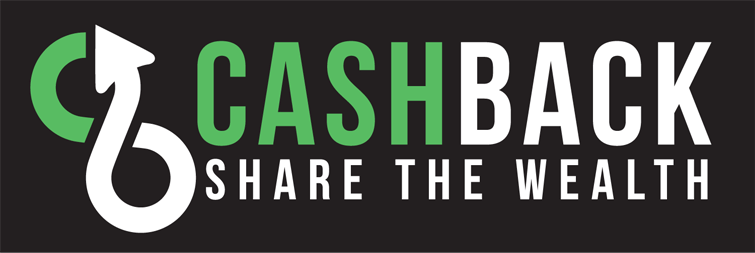| Back to Blog |
The Opposite of Progress |
|
There are so many great ideas that never get off the ground and there are numerous reasons why great ideas fail. Sometimes an idea isn't fully formed and therefore not ready for commercialization. Sometimes an idea is too ahead of its time and not easily embraced by the mainstream target audience. Sometimes the benefits are too vague or require too much change to existing consumer habits. And sometimes it's the entrenchment of those most likely to lose out by the introduction of something new that fight against the introduction of an idea too radical or too disruptive to allow them to compete against it or adapt to the new reality such innovation would inevitably bring about. In the last case, the most popular weapon is legislation. Established industries have clout which plays to their advantage against the disadvantage of a newcomer whose idea is unproven. Take for instance the case of Tesla and their consumer-direct approach to selling electric cars. 48 states have established laws prohibiting an automobile manufacturer from selling directly to car buyers, instead requiring the purchase be made through a car dealership. While shopping and buying online has revolutionized consumerism, it seems like automobile shopping is still stuck in the last century. You can look at cars online and comparison shop but there is no BUY button – it automatically redirects users to the nearest dealer who has what the shopper wants. Who got these laws implemented in the first place? The car dealerships! It's insurance to them that anyone who doesn't want to play by their rules will have to fight a long an protracted legal battle to get the rules changed… and actually, they'll have to fight at least 48 legal battles, one in each state! The legislators don't want to upset the apple cart. Dealerships are local and pay local taxes and employ local citizens and vote for local representatives. Online retailers don't have the localization that demands the allegiance of the legislators to fight for their interests. To the local leaders, it's a lose-lose situation so they will stand behind protectionist measures even if it flies in the face of innovation or even common sense. It will cause them more headaches in the prospect of increased unemployment when dealerships decline, decreased taxes when the out-of-state manufacturer files their income in another state, and fewer votes on election day when the local citizens remember who allowed their community to suffer the local losses of the innovation. Talking about online shopping in general wouldn't be complete without a nod to Amazon.com. Amazon supersized the big-box retailer model to larger-than-life scale by offering virtually everything on the planet in one convenient place. If they could figure out how to deliver pizza in 30 minutes or less, Amazon would be dominating in the pizza business! (And knowing Jeff Bezos, he's probably working on a way to innovate that industry too) Of course, Amazon and all other online retailers got a pass on paying local sales taxes for many years before states finally started realizing how much tax money they were losing to Amazon's business model versus traditional storefront retailers. The retailers also recognized even earlier how disruptive Amazon's technology was to their business model… not just on price but also on user reviews and comparison shopping and other storefronts! Tesla could at least overcome this obstacle by opening storefronts in every state but the old regime still doesn't like it. Amazon has only recently began leveraging the concept of localization by building more distribution centers and running a private fleet of local delivery vehicles in select markets in order to offer a same-day service comparable to the immediate gratification that a local store shopping experience affords. It's not just goods that face such challenges – innovative services face the same challenges. Several start-ups have taken a stab at integrating mobile technologies with public transportation but none seems to have raised so many objections as Uber. Uber's business model is simple: subscribers ‘hail' a ride from their phone and Uber's network locates the closest vehicle, dispatching it to the subscriber's location. It then notifies the subscribers of an estimated time of arrival and again upon approach. Rates are set and all charges are automatically debited to the subscriber's credit card. You can probably guess who objects – taxi cab companies and livery services. In virtually every new city Uber bumps up against taxi commissions which have entrenched the interests of existing companies against the threat of anything new or innovative. Often this is wrapped in the mask of ‘protecting the public good' by ensuring a uniform quality of service or even fixing rates to prevent one cab company from undercutting another but in the end it is these very regulations that prohibit the experimentation that makes a free enterprise system work. Not every start-up will face this kind of resistance. If the idea is new and unique and introduces an entirely new paradigm to the marketplace then there's no legacy to combat. If the idea is a new spin on an existing idea or seeks to reinvent the current marketplace, then it is most likely going to face criticism, ridicule and opposition. If Thomas Edison had faced the kind of opposition to his invention of the light bulb that many innovators face today, we'd still be living our lives by candlelight and the billionaires in our society would be the CEOs of the wax and wick companies! Protectionist regulations stifle creativity and vision at the expense of opportunities to advance our great society. |
|
|
8001 Woodland Dr., Indianapolis, IN 46278 info@gohelios.com
Helios, LLC is a division of New Sunshine, LLC. Copyright © 2024. All Rights Reserved. indianapolis web design by: imavex


